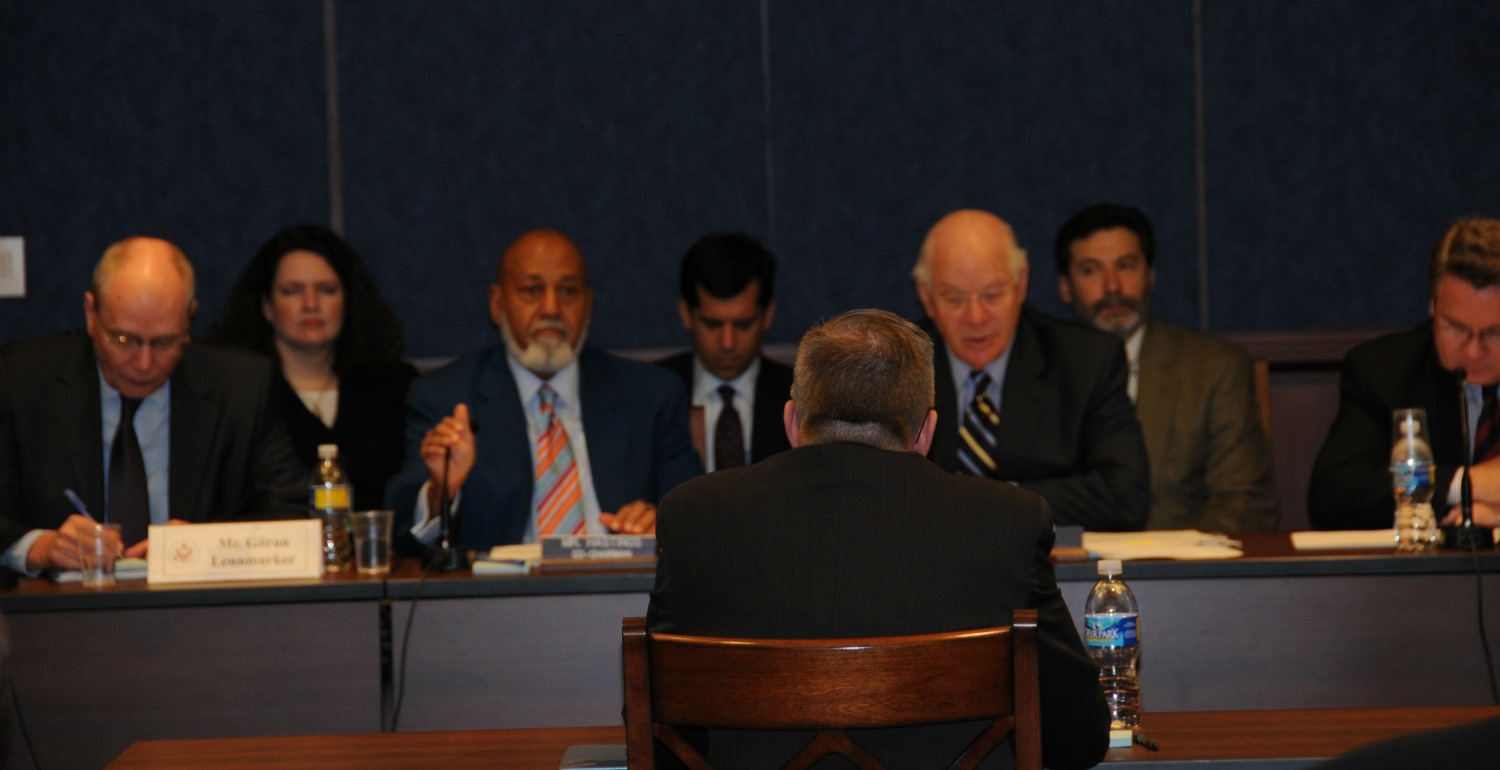The hearing will be the third in the a series of hearings on Kazakhstan as it nears 2010, when it will take over Chairmanship of the Organization for Security and Cooperation in Europe. Astana’s bid to lead the organization was controversial because of Kazakhstan’s record on human rights and democratization. At the OSCE Summit in Madrid in November 2007, Foreign Minister Tazhin pledged to implement a number of key reforms. The purpose of the hearing is to see how much progress has been made since then and to discuss how Washington can help Kazakhstan come into compliance with its commitments and plan for its Chairmanship.
Members
Witnesses
Relevant Issues
Relevant Countries

Helsinki Commission Advances Human Rights, Demands f...
Oct 19, 2023By Shannon Simrell, Senior Policy Advisor Between October 2-13, 11 Helsinki Commission staff joined approximately 1,400 representatives of OSCE participating States (pS) and civil society representatives in Warsaw, Poland in […]

United States Demonstrates Global Leadership on Ukra...
Jul 14, 2023The Helsinki Commission’s four senior leaders helmed the United States’ bicameral, bipartisan delegation to the 30th Annual Session of the OSCE Parliamentary Assembly last week in Vancouver, Canada. Co-Chairman Senator […]
Helsinki Commission Chair and Co-Chair Lead Delegati...
Jul 10, 2023WASHINGTON—Helsinki Commission Co-Chair Senator Ben Cardin (MD) and Helsinki Commission Chair Representative Joe Wilson (SC-02) led a bipartisan Congressional delegation to the 30th Annual Session of the OSCE Parliamentary Assembly (OSCE […]

North Macedonia’s Leadership of the OSCE in a ...
Feb 28, 2023North Macedonia has taken up leadership of the world’s largest regional security organization—the Organization for Security and Cooperation in Europe (OSCE)—a year into Putin’s brutal invasion of Ukraine. Much of […]
HEARING: NORTH MACEDONIA’S LEADERSHIP OF THE OSCE IN...
Feb 24, 2023Tuesday, February 28, 2023 1:00 p.m. to 2:00 p.m. Streaming: https://www.youtube.com/watch?v=xNgAOyC9f5g North Macedonia has taken up leadership of the world’s largest regional security organization—the Organization for Security and Cooperation in Europe […]
U.S. Delegation to the OSCE PA presents Joint Statem...
Feb 24, 2023WASHINGTON— Today, the U.S. Delegation to the Parliamentary Assembly of the Organization on Security and Cooperation in Europe (OSCE PA) endorsed the “Joint Statement of Action on the One-Year Anniversary of […]
Steadfast Support for Ukraine: United States Delegat...
Feb 23, 2023WASHINGTON – Today, the United States Delegation to the Parliamentary Assembly of the Organization for Security and Cooperation in Europe (OSCE PA), led by Senator Ben Cardin (MD), met with […]
Helsinki Commissioners Urge Austria to Deny Visas to...
Feb 15, 2023WASHINGTON – Helsinki Commission leadership, Chairman Rep. Joe Wilson, Co-Chairman Sen. Ben Cardin, and Rep. Steve Cohen, on February 10, sent a letter to Austrian Minister of Foreign Affairs Alexander […]

OSCE’s 2022 Ministerial Council in Lodz: Russia Isol...
Dec 09, 2022By Janice Helwig, Senior Policy Advisor, Demitra Pappas, Senior Advisor Department of State, Shannon Simrell, Representative of the Helsinki Commission to the U.S. Mission to OSCE Foreign Ministers and senior […]
NATO Refocused, Europe Reinforced
Aug 10, 2022By Jessika Nebrat, Max Kampelman Fellow Following the escalation of Russia’s war against Ukraine, the North Atlantic Treaty Organization (NATO) is playing a role it has not filled in years. Forced to […]
Co-Chairman Cohen Deplores Arrest of Ilya Yashin in ...
Jul 28, 2022WASHINGTON—In response to the arrest of Ilya Yashin, a Russian politician critical of Russia’s war in Ukraine, the Helsinki Commission Co-Chairman and OSCE PA Special Representative on Political Prisoners Rep. […]


